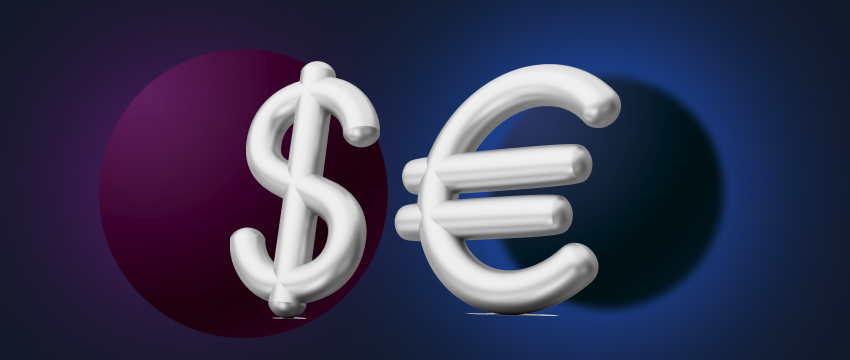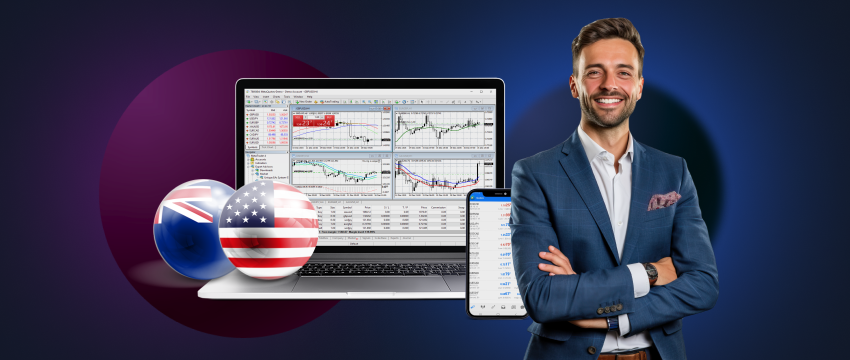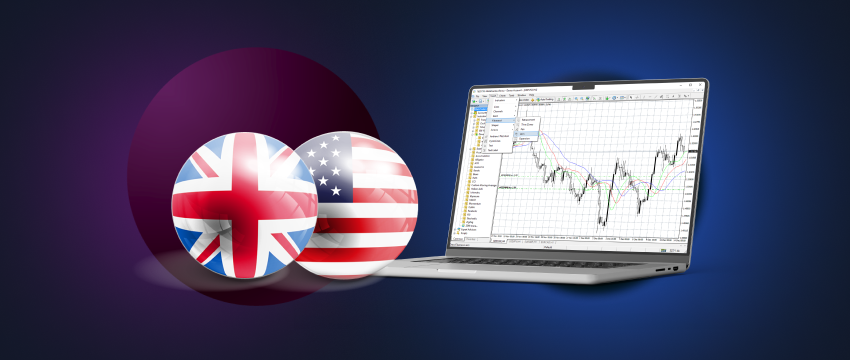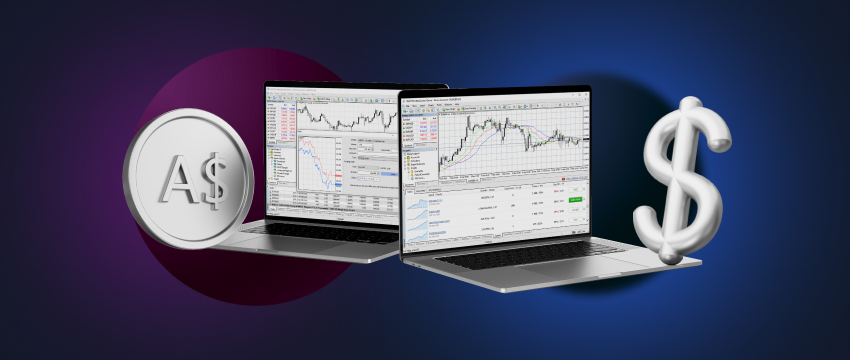Currency pairs play an essential role in the world of forex because they are central to all trading activities. Among these are the majors, i.e. the currency pairs that are the most traded globally. They comprise a significant portion of daily trading volumes due to their high liquidity and relatively lower spreads in comparison to other pairs.
Major, minor and exotic currency pairs
Alongside the majors, traders may also choose to trade minor and exotic currency pairs. But what exactly are the differences between the three?
Major currency pairs
A major currency pair is any pair that contains the USD (United States Dollar) and any other of the world’s remaining major currencies. This includes the EUR (Euro), JPY (Japanese Yen), GBP (British Pound), CHF (Swiss Franc), CAD (Canadian Dollar), AUD (Australian Dollar), and the NZD (New Zealand Dollar). The 7 major currency pairs are:
- EUR/USD
- USD/JPY
- GBP/USD
- USD/CHF
- AUD/USD
- USD/CAD
- NZD/USD
Notably, traders say that the USD is involved in more than 80% of all forex trading.
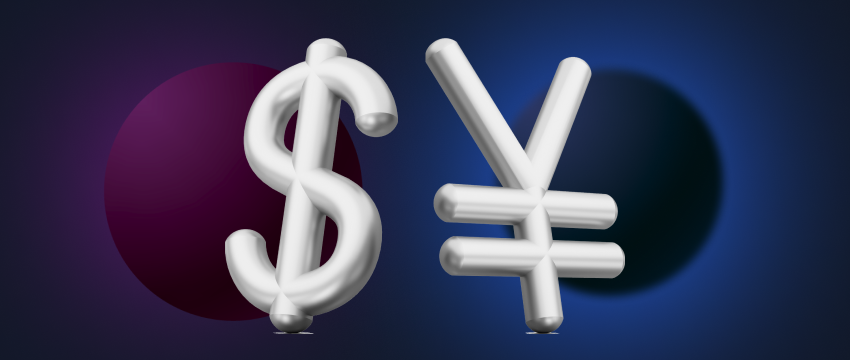
Minor currency pairs
Minor currencly pairs include any two of the major currencies. In other words, it is a pair not associated with the USD. Examples of minor currency pairs are:
- EUR/GBP
- GBP/JPY
- AUD/JPY
- EUR/AUD
- EUR/CHF
Minor currency pairs are said to show a little less liquidity than the majors. They may also have slightly wider spreads.
Exotic currency pairs
Unlike major and minor currency pairs, exotic currencies usually lack liquidity, have wider bid/ask spreads, and aren’t as easily traded in the forex market. Exotic currency pairs usually belong to developing or emerging countries like South Africa, Mexico, Brazil, Hungary, Chile and others. Some examples of exotic currency pairs include:
- USD/MXN
- USD/TRL
- USD/ZAR
- USD/BRL
- GBP/ZAR
- EUR/TRY
- AUD/MXN
- EUR/HUF
- EUR/PLN
While exotic currency pairs are considered a riskier option, they do have a place in trading activities. This is for several reasons, be it for portfolio diversification or for the potential to earn higher returns from their volatility.
A brief analysis of the majors
EUR/USD
Probably one of the most traded currency pairs globally, traders generally favor the EUR/USD pair because of its low spreads and high liquidity. Seeing as its so popular, access to information that impacts trading decisions is generally more easily available. Market fluctuations related to this currency pair typically depend on the economic health of the Eurozone and the United States.
Key economic indicators include:
- GDP growth rates
- Unemployment figures
- Inflation rates
- Manufacturing data and PMI (Purchasing Managers Index)
- Consumer price index (CPI)

USD/JPY
The USD/JPY is the 2nd most traded currency pair. The Japanese Yen is also the 3rd most traded currency in the world, behind the Euro and the USD.
During periods of market stress, many consider it a safe-haven currency. However, some suggest that it’s best suited for professional traders with an appetite for risk and significant trading expertise, especially when the currency itself is under pressure.
GBP/USD
GBP/USD is globally the third most widely traded pair, and traders also refer to trading the pair as trading the ‘cable’. Economic indicators and central bank announcements in both the United Kingdom and the US reportedly affect the pair.
These may boost or devalue the currencies, depending on the situation. The currency pair is also quite popular among day traders and swing traders.
USD/ CHF
Traders commonly call this currency pair the ‘Swissie’. Like the Japanese Yen, the Swiss franc is considered another safe-haven currency because of Switzerland’s political and economic stability.
Factors impacting the USD/CHF are the value of each currency in relation to each other. Furthermore, economic indicators like employment data and GDP in both countries may also affect the currency pair.
AUD/USD
Forex traders often refer to the AUD/USD pair as the Aussie. This pair is notably influenced by Australia’s commodity exports, particularly changes in commodity prices like agricultural products and minerals. It stands as one of the world’s most traded currency pairs, with various factors impacting the value of each currency, including:
- geographical factors (e.g. production of commodities),
- interest rate differential between the Federal Reserve and the Reserve Bank of Australia
- political factors (e.g. China’s business environment)
USD/CAD
Known as the Loonie, this currency pair is closely associated with commodity prices, especially crude oil. This may have to do with Canada’s economy’s heavy reliance on oil which dictates its economic health and currency value. Traders often watch for changes in oil prices alongside US and Canadian economic reports to gauge movement direction in the currency pair.
NZD/USD
Nicknamed the Kiwi, the NZD/USD pair is influenced by global commodities markets. This could be due to agriculture being a significant factor in New Zealand, accounting for more than two-thirds of its exports.
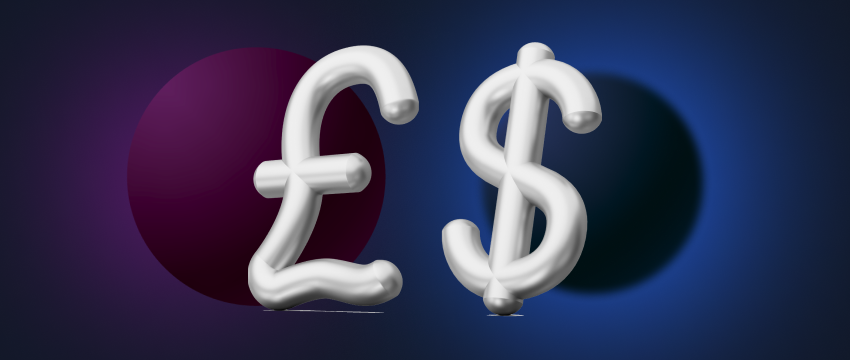
Becoming a skilled trader with the majors
If you’re only now about to jump into trading the world’s major currency pairs, it might be a good idea getting in some practice first. One of the ways to do this is by registering for a demo trading account with T4Trade.
Once you’ve signed up, you’ll have access to the MT4 platform on which to try out different trading strategies. Ultimately, the style of trading or strategy you pick will depend on your budget, time, and risk.
However, having the ability to test different approaches, you’ll be able to establish which suits you best before moving to a live trading environment.
A demo trading account offers a variety of benefits:
- It provides you with a simulated trading environment so you can get a proper understanding of real market conditions.
- It allows you to implement any complexity of trading strategy with any major currency pair, using virtual funds. In this way, regardless of outcome, your money is safe.
- Without the worry of losing your own capital, using a demo account gives you the time required to gain the confidence, skills, and expertise needed to become a real trader.
- You’ll have the opportunity to learn how to use technical analysis, a vital tool for trading major currency pairs. You will have access to valuable analysis tools and indicators so you get a good feel for what analysing the markets will be like when you move to a live trading environment.
- You can also discover more about the platform’s automated trading feature. One of the most robust tools that MT4 offer’s, automated trading reduces the risk of emotions adversely impacting trading decisions.
Trading major currency pairs with T4Trade
Global traders use T4Trade because of its high-quality product and service offering. One that caters to all types of traders, regardless of level of expertise.
As a T4Trade trader, you’ll have access to more than 300 financial instruments across 6 asset classes. These include CFDs on major, minor and exotic currency pairs, alongside CFDs on futures, metals, commodities, indices, etc. You can also choose from a variety of trading accounts, all designed with your individual needs in mind.
Apart from a flexible trading experience and the use of T4Trade’s innovative MT4 trading platform, you’ll also enjoy competitive leverage, spreads starting from as low as 0.0 pips, quick trade execution, fast and easy deposits/withdrawals, and dynamic multilingual customer support (24/5).
In addition, you can also access T4Trade’s abundant educational resources to increase your trading knowledge. This includes podcasts, webinars, blogs, e-guides, and even an innovative Economic Calendar and Live TV.
Disclaimer: This material is for general informational and educational purposes only and should not be considered investment advice or an investment recommendation. T4Trade is not responsible for any data provided by third parties referenced or hyperlinked in this communication.
